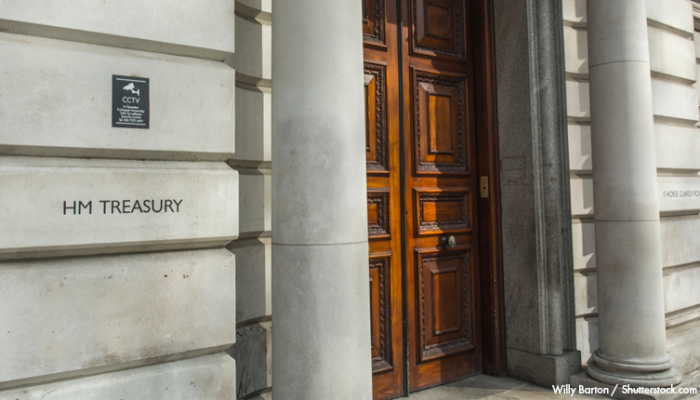Parliament Watch: Comprehensive Spending Review speculation
In this series, we’re exploring how different sectors may be impacted by autumn policy announcements and how you can prepare for a period without physical party conferences.
One of the most significant political events this Autumn, once Parliament returns from its Summer recess on 1 September, will be the long awaited Comprehensive Spending Review (CSR). First scheduled for 2019 as Boris Johnson took office; it was postponed over concerns about Brexit and an early General Election followed instead. It is considered by many to be a very bold move for this Government to press on with a 2020 CSR during the COVID-19 recovery and a possible second wave of cases.
The Treasury is accepting written representations in advance of the CSR, from any interest group, individual or representative body, up until 24 September 2020.
You can see the scope of the Review by the Government priorities listed here for submissions to address:
- Strengthening the UK’s economic recovery from COVID-19 by prioritising jobs and skills
- Levelling up economic opportunity across all nations and regions of the country by investing in infrastructure, innovation and people – thus closing the gap with our competitors by spreading opportunity, maximising productivity and improving the value add of each hour worked
- Improving outcomes in public services, including supporting the NHS and taking steps to cut crime and ensure every young person receives a superb education
- Making the UK a scientific superpower, including leading in the development of technologies that will support the Government’s ambition to reach net zero carbon emissions by 2050
- Strengthening the UK’s place in the world
- Improving the management and delivery of our commitments, ensuring that all departments have the appropriate structures and processes in place to deliver their outcomes and commitments on time and within budget
The Review will address current Government spending from next year, 2021-22, to 2023-24 as well as capital, or infrastructure, spending for an additional year, to 2024-25 so it is clear the CSR is critical given the next General Election will be in 2024 or earlier.
This key fiscal event presents the Government with a rare opportunity to shape not just spending, but its vision for modern UK Government administration.
Strengthening the UK’s place in the world after the long-running Brexit issue is crucial for this Government, yet we have already seen an indication of the different path this administration is taking in terms of the abolition of the Department for International Development and creation of a larger Foreign, Commonwealth and Development Office. Its new Permanent Under-Secretary was announced recently as Sir Philip Barton and he takes up this position on 1 September.
Despite being widely criticised by the development community and three former Prime Ministers, Boris Johnson has been clear he thinks a new ‘super department’ is the right way forward for a post-Brexit Britain, with a far greater emphasis on trade rather than aid. The Prime Minister said: ‘For too long, frankly, UK overseas aid has been treated like a giant cashpoint in the sky, that arrives without any reference to UK interests.’
This CSR might be less controversial in terms of public spending cuts, not least because in light of COVID-19 there will be little appetite to reduce NHS spending, and also because of Boris Johnson’s mission to level up Britain and increase spending across the nations and regions of the UK, through improved infrastructure and better public services. The 40 new hospitals promised will need to be paid for and delivered, and the PM has also been consistently clear that there will be no return to austerity. Conversely, he has promised a significant rise in number of NHS doctors and nurses, as well as new police officers and a school building upgrade programme.
Additionally, in what is being viewed by many Westminster watchers as a victory for the Prime Minister’s Chief Adviser Dominic Cummings, the Government’s long-awaited foreign policy and defence review is being conducted alongside the CSR. This could see cuts to the defence budget and is certain to see a shift away from traditional military spend, such as tanks, to modern defence capability such as information operations and technology to tackle the threat from cyber warfare. The overall size of the Army might be reduced too as the 82,000 troop target was dropped from the 2019 Conservative manifesto and the Government has found it increasingly difficult to meet this figure in recent years.
In light of the coronavirus pandemic, will the CSR seek to fund the crucial local government and social care services that have been under such strain in recent months? We will find out soon enough, but the problem isn’t going away for the Government. Leading thinktank the Institute for Fiscal Studies has warned recently of local government facing an additional £2bn funding shortfall this financial year. The IFS warned that the Government needed to decide on whether to offer local government additional support this autumn including allowing them greater borrowing flexibility or face seeing cuts to services.
The autumn 2020 Comprehensive Spending Review offers the Government and its relatively inexperienced Chancellor Rishi Sunak the opportunity to set out how it intends to operate over the coming years, as Britain adjusts to its new status, no longer in the European Union and adjusting to life after the pandemic, with all of the additional Government spending which that entailed. The Chancellor has said the CSR is: ‘Our opportunity to deliver on the third phase of our recovery plan – where we will honour the commitments made in the March Budget to rebuild, level up and invest in people and places spreading opportunities more evenly across the nation.’
Keeping track of the CSR or other political issues? Get a free trial of Vuelio Political Monitoring and make sense of new political times.








Leave a Comment